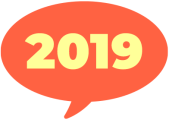Remember the Australian bushfires? Back in January, the unprecedented blazes looked like strong candidates to make wildfires the disaster theme of 2020, even as news buzzed in the background about the spread of a mysterious new coronavirus. Instead, the bushfires were simply an inauspicious start to a year when the world got very, very tired of hearing the word “unprecedented.”
The focus soon turned to the COVID-19 pandemic. In March, according to Oxford Languages, “the frequency of climate, global warming, and related terms plummeted in our corpus” as virus-related vocabulary skyrocketed. Still, an enraged Mother Earth didn’t let us off the hook just because we were distracted by something else. The Atlantic hurricane season shattered records, Californians lived through the state’s worst-ever wildfire season, and the smoke-filled September in the West was so far beyond hazardous in some towns that health experts didn’t even know what the air quality would do to the human body.
Each December, dictionary editors consider how our collective vocabulary has changed and pick out a word that captures the year’s spirit. Last year, some selected phrases that expressed concern for our overheating planet, like climate emergency and climate strike. This year, unsurprisingly, it was all about the virus. Merriam-Webster and Dictionary.com played it straight and went with pandemic. Collins Dictionary, in Scotland, picked lockdown. In an unusual move, Oxford Languages decided that “2020 is not a year that could neatly be accommodated in one single ‘word of the year.’”
The pandemic ushered in swift and widespread changes to the lexicon. Little-known concepts like social distancing and respiratory droplets suddenly turned up in everyday conversation. We borrowed words that sounded like they belonged to another era or a scary movie, like quarantine. People coined some “fun” words too, as much as life in a pandemic can be fun: Doomscrolling, covidiot, and maskne (mask-induced acne.)
The rapidly changing climate sparked new words, too. This year, our picks focused on the ones that slipped into popular use. Some are related to the pandemic, like anthropause and ghost planes, while others reflect new ways of talking about the anger and anxiety brought on by our warming planet.
Anthropause, n.
A period of diminished pollution following the COVID-19 lockdowns.
When the world started quarantining earlier this year, traffic, air travel, and factory production slowed. Air pollution temporarily improved around the world; people started hearing birdsong again. Global carbon emissions dipped by an estimated 7 percent. In June, a group of scientists published an article in the journal Nature that christened this period the anthropause, from the Greek anthropo-, meaning “human.” It’s a reminder of how human activity radically reshapes the planet.
Climate arsonist, n.
A person, sometimes orange-haired, who’s figuratively setting the world on fire.
The 45th president has been called many names, but this year brought a new one. President Donald Trump’s successful challenger in the 2020 election, Joe Biden, minted this insult during the catastrophic California fire in September. “If you give a climate arsonist four more years in the White House, why would anyone be surprised if we have more of America ablaze?” Biden asked during a speech in his hometown of Wilmington, Delaware. “If you give a climate denier four more years in the White House, why would anyone be surprised when more of America is underwater?”
Doomer, n.
Someone who is convinced the world is headed straight for all-out collapse.
If last year was all about “OK, boomer,” this year’s motto could be “OK, doomer.” These are the people who are waiting for the world to fall apart. Doomerism is a mindset that short of a miracle, problems like climate change, food shortages, refugee crises, and political instability will lead to the near-term collapse of civilization — so why even bother to try and stop it? Climate scientists like Michael Mann push back at this narrative, arguing that there’s still time and hope for action on climate change. A lot of doomers, some from Gen Z, hang out on subreddits like r/doomer and r/collapse, where you’ll find people saying things like, “Sometimes I wonder how we are not all walking around in a state of pure unquellable panic” (one answer: psychic numbing) and “What signs of collapse do you see in your region?”
Ecofascism, n.
Oppression in the service of climate action or conservation.
“Nature is healing. We are the virus.” During the anthropause earlier this year, people posted this line on social media alongside genuine pictures of clear skies or doctored ones of dolphins swimming in the canals of Venice. The memes reminded some of a dark corner of environmentalism: the idea that human suffering can help heal the planet. In the 20th century, some conservationists used this logic to justify racist and anti-immigrant policies. Eventually, the internet turned “nature is healing” into a joke that satirized this way of thinking, using it to caption images of Lime scooters abandoned in a lake or dinosaurs roaming Times Square.
Ghost flights, n.
Planes that fly empty.
This spring, growing fears of coronavirus and lockdowns meant that most people stopped flying. But many planes kept taking off anyway, often nearly empty, burning through thousands of gallons of fossil fuel. In the United States, the financial rescue package passed by Congress in April required airlines that received aid to keep flying to every domestic airport they normally served, no matter if they had passengers. Some European airlines flew empty because of an old policy where airlines needed to keep flying or risk losing their competitive time slots at major airports. Ghost planes are just as scary as they sound — nothing beats air travel if you want to supersize your carbon footprint.
Greentrolling, v.
Shaming oil companies on social media.
Despite continuing to explore for fossil fuels, oil and gas companies tout their climate credentials on Twitter all the time, a PR technique called greenwashing. Mary Heglar, a climate essayist and one-half of the duo behind the podcast Hot Take, now responds with sardonic remarks to shame them, dubbed greentrolling. It started last fall, when she replied to a tweet from BP asking people to calculate their carbon footprint. “Bitch what’s yours???” she asked. In an interview with Heglar last month, I asked if she had a word for bullying oil companies. “If I were to come up with a name for it, it would be greentrolling,” she said. “I just thought of it off the top of my head.” As greentrolling spread — with Swedish activist Greta Thunberg and Democratic Representative Alexandria Ocasio-Cortez taking part — the new term has too.
Net-zero, adj.
Offsetting the carbon dioxide you emit by making sure that the same amount gets sucked up by trees, plants, machines, or other things.
Corporate executives have started talking differently about the climate crisis, even if the words they were using, like net-zero, were kind of inscrutable. The phrase net-zero has been around for a while, but it took on new meaning this year when Amazon, Unilever, Shell, and other big corporations pledged to aim for net-zero emissions. Turns out that many companies ignore the bulk of their emissions using this measure, instead considering only a select piece of their operations. (Some fossil fuel producers, for instance, ignore all of the emissions burned after they sell their products.) Corporate jargon is sneaky, and words like climate-neutral, carbon intensity, and carbon-negative can get pretty confusing. That doesn’t mean they’re meaningless, though. Watch Grist’s Emily Pontecorvo explain how to tell if a company’s net-zero pledge means anything.
Spillover, n.
When a new disease leaps from one species to another.
The novel coronavirus, like many other pathogens, is thought to have originated in bats. Then, one fateful day last year, it spilled over into humans — either through a bat directly, or by some other infected animals, like a pangolin. These deadly leaps are becoming more common. They’re made more likely by deforestation, urbanization, and agriculture, which have cut into habitats and brought wildlife into closer contact with humans. In July, a group of experts argued that taking steps to prevent the next pandemic — such as protecting forests and clamping down on the illegal wildlife trade — would also protect the environment. Fingers crossed that spillover won’t make the list again in 2021: The last thing we need is a double pandemic.
Previous Words of the Year posts:
2019: Birth strike, flygskam, Pyrocene: And we thought things couldn’t get worse
2018: Firenado, hothouse, smokestorm: The year fires went wild
2017: Hotumn, meatmares, ecoanxiety: Oh, how young we all were then






